As artificial intelligence continues to advance, its impact on our daily lives becomes more significant. AI-powered devices and applications have become ubiquitous, and machine learning is the driving force behind many technological advancements. In this section, we will explore the various applications of artificial intelligence in everyday life and how it is changing the world around us.
Key Takeaways:
- Artificial intelligence has become ubiquitous in our daily lives.
- Machine learning is the driving force behind many technological advancements.
- The applications of AI in everyday life are diverse and constantly expanding.
Automation and Efficiency
At the heart of AI lies automation, a process that is transforming every aspect of our lives. From self-driving cars to virtual personal assistants, automation is making our daily life more efficient than ever before.
One of the greatest applications of AI is in data analysis. Businesses can now use AI algorithms to streamline processes and improve productivity. For instance, AI can automate the process of collecting data, analyzing it, and generating reports in real-time, reducing the time and effort required by humans. This process not only improves efficiency but also reduces the likelihood of errors, thereby leading to more accurate and reliable results.
Automation also plays a key role in the manufacturing industry. With the help of AI-powered robots, factories can now operate 24/7 without the need for human intervention, thereby reducing the time required to produce goods and improving the quality of products.
Another application of AI in automation is in customer service. Chatbots powered by AI algorithms can now communicate with customers in real-time, answering their queries and addressing their concerns promptly and accurately. This process enables businesses to save time, cut costs, and improve customer satisfaction.
Overall, automation driven by AI is making our lives more efficient than ever before. The ability to analyze vast amounts of data quickly and accurately, combined with the ability to automate repetitive tasks, is transforming industries and businesses across sectors.
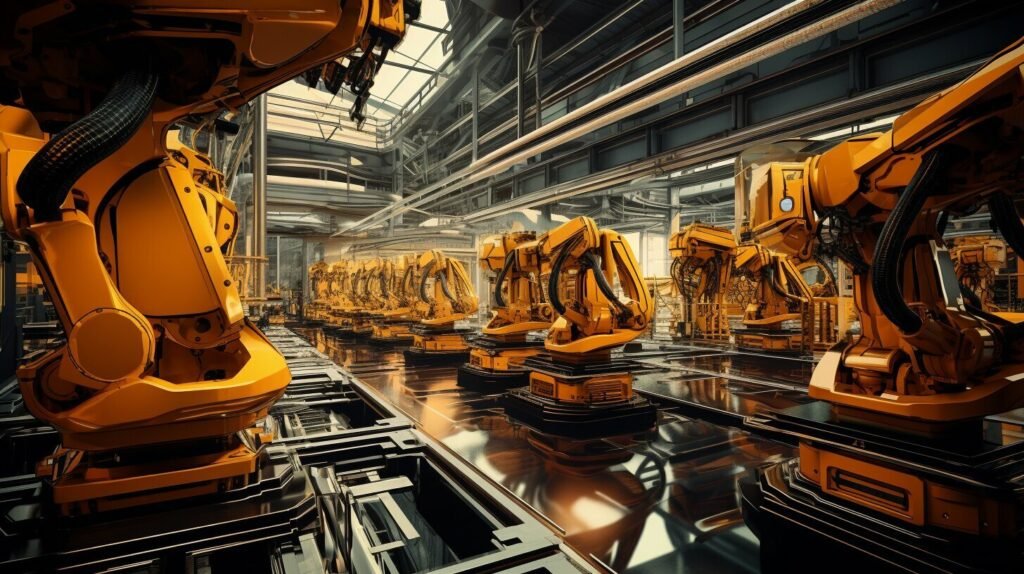
Smart Devices and Virtual Assistants
AI has taken the world by storm, and one of the most visible manifestations of its integration in everyday life is through smart devices and virtual assistants. From smartphones to wearables, AI-powered devices have become an indispensable part of our lives, making everyday tasks easier and more efficient. Virtual assistants like Alexa, Google Assistant, and Siri are now household names and are changing the way we interact with technology.
One of the main features of smart devices is their ability to connect and communicate with each other. This allows users to control multiple devices with a single command – for example, you can turn on the lights, adjust the thermostat, and play music, all through a single smart device. Additionally, smart devices are equipped with sensors that allow them to collect and analyze data, providing real-time insights into various aspects of our lives.
Virtual assistants, on the other hand, are AI-powered tools that can understand natural language and carry out tasks on our behalf. They can perform a wide range of functions, from setting reminders and playing music to ordering groceries and controlling smart devices. Virtual assistants are also becoming more sophisticated, with advanced features like voice recognition and personalized recommendations.
As AI continues to evolve, the capabilities of smart devices and virtual assistants are only going to increase. We can expect to see more integrations between devices, leading to a more connected, intelligent home environment. Additionally, virtual assistants will become even more intuitive, with the ability to anticipate our needs and provide customized experiences based on our preferences. The possibilities are endless, and we are only scratching the surface of what AI can do.
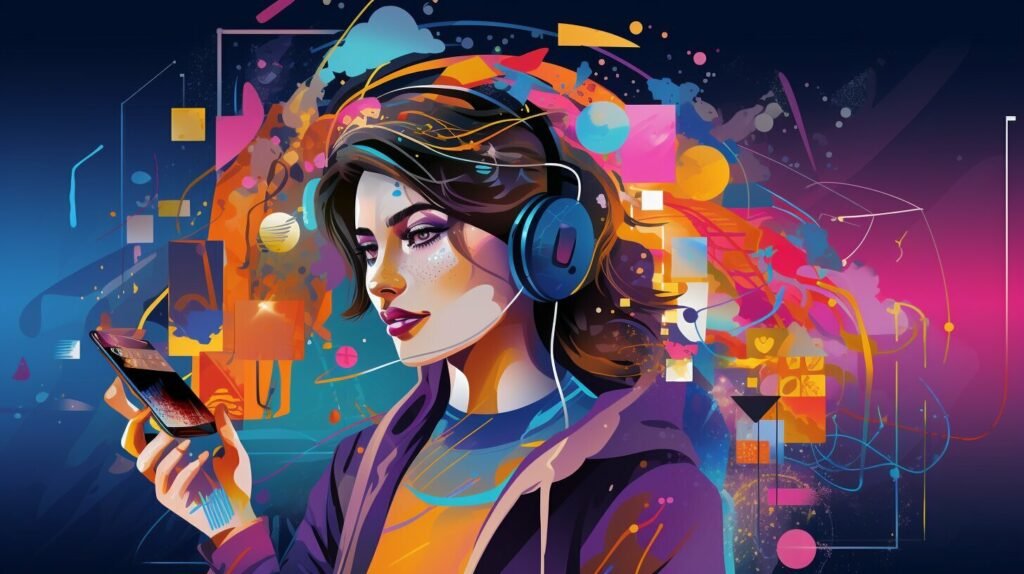
The Internet of Things (IoT)
Artificial intelligence has also had a significant impact on the Internet of Things (IoT), a network of interconnected physical devices that communicate with each other and exchange data. By analyzing the massive amounts of data generated by IoT devices, AI algorithms can identify patterns and insights to optimize operations and enhance user experiences.
For example, smart buildings equipped with IoT sensors and AI algorithms can adjust temperature and lighting based on occupancy, reducing energy consumption and costs.
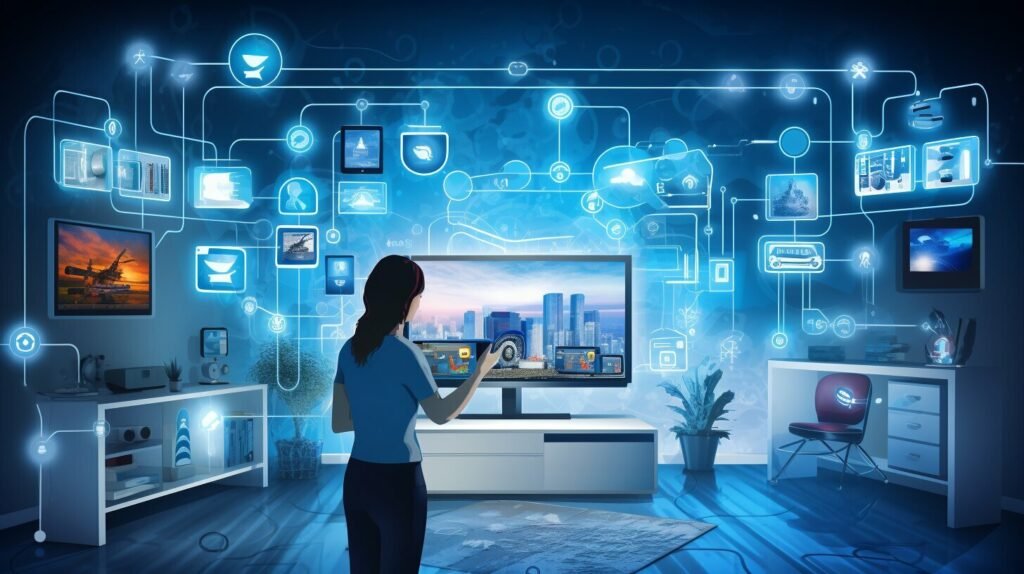
AI-powered home appliances such as refrigerators and ovens can also connect with other devices in the home, such as smartphones and smart speakers, enabling users to control them remotely. This level of connectivity and automation not only improves convenience but also opens up new possibilities for personalized experiences and efficient resource management.
As the IoT continues to grow and become more integrated into our lives, AI will play a crucial role in making these devices more intelligent, efficient, and secure. However, with the increasing use of personal data in IoT devices, it is essential to ensure that privacy and security concerns are addressed to prevent misuse or unauthorized access.
Personalized User Experiences
One of the most significant impacts of AI in everyday life is the ability to personalize user experiences. AI algorithms analyze vast amounts of data to offer tailored recommendations and improve customer satisfaction, leading to increased brand loyalty and engagement. From shopping websites to streaming services, AI-powered personalization has become an essential tool for businesses to stay competitive.
According to a recent survey, 80% of customers are more likely to do business with a company that offers personalized experiences.
Personalized recommendations are not limited to just online shopping. Virtual assistants like Amazon’s Alexa and Google Assistant use AI to provide personalized responses and actions based on individual users’ preferences. These devices can play your favorite music, read your schedule for the day, and even order your groceries for you.
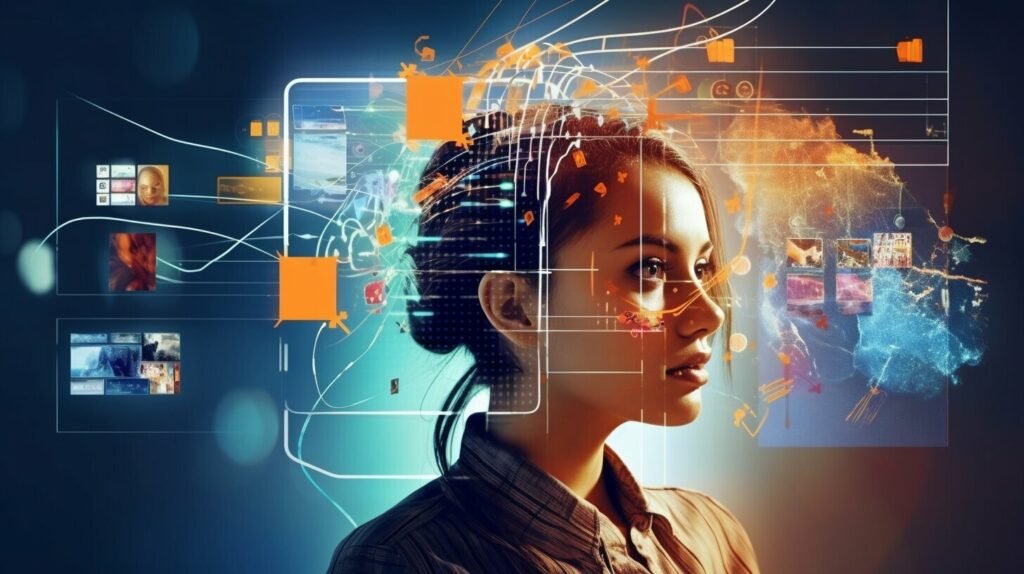
Personalized learning experiences have also become more prevalent with AI technology. Educational platforms use AI-powered tools to analyze student data and provide adaptive learning experiences. This technology allows students to learn at their own pace and receive personalized feedback, ultimately improving their academic performance.
Studies have shown that personalized learning experiences can increase student engagement and improve academic outcomes.
While personalized user experiences have significant benefits, there are also ethical considerations to be aware of. As AI algorithms learn more about individuals’ preferences, there is a risk of privacy invasion and data misuse. It is crucial for companies to prioritize data protection and ensure that users’ personal information is not being exploited.
AI in Healthcare
In recent years, AI has made significant strides in the healthcare industry, revolutionizing patient care, drug discovery, and diagnostics. With the help of AI, healthcare professionals can provide more personalized and effective treatments, leading to improved patient outcomes.
One of the key applications of AI in healthcare is medical imaging. AI algorithms can analyze medical images such as X-rays, MRIs, and CT scans to detect abnormalities and assist in diagnosis. This enables healthcare professionals to make more accurate and timely diagnoses, leading to better patient outcomes. Additionally, AI can assist in the development of new drugs by predicting the effectiveness of certain compounds and accelerating the drug discovery process.
| Benefits of AI in Healthcare | Challenges of AI in Healthcare |
|---|---|
|
|
Despite the many benefits of AI in healthcare, there are also ethical considerations and challenges that must be addressed. One of the biggest concerns is about the privacy and security of patient data. With the increasing use of AI, more data is being collected and analyzed, leading to potential breaches and misuse of sensitive patient information. Another concern is bias in AI algorithms, which can lead to inaccurate diagnoses and treatment recommendations. Additionally, integrating new AI systems into existing healthcare systems can be challenging and requires significant resources.
Overall, AI has the potential to transform healthcare delivery and save lives. As technology continues to advance, we can expect to see even more innovative applications of AI in healthcare.
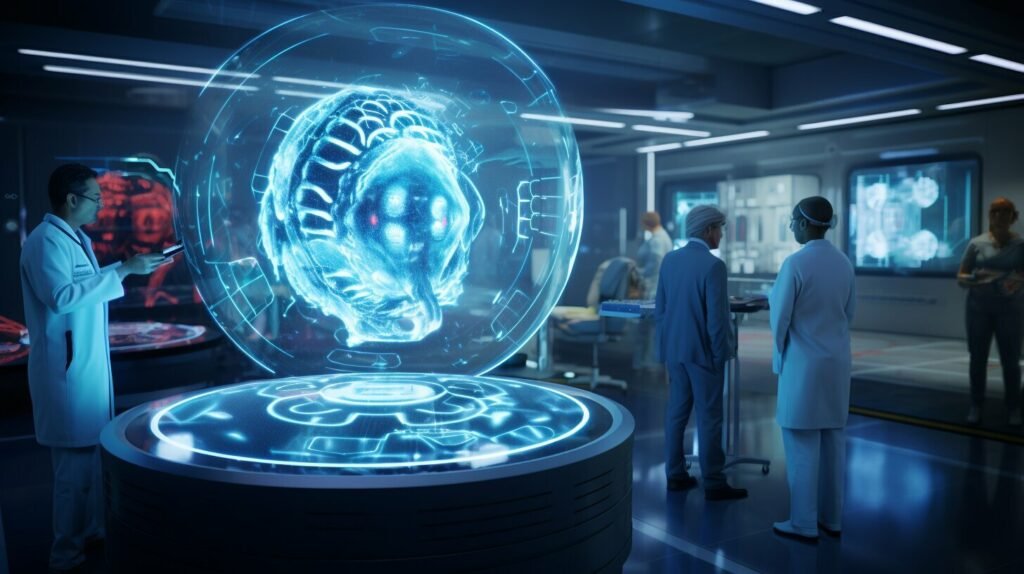
AI in Education
We cannot ignore the growing role of AI in the field of education. AI-powered tools and platforms are transforming the way we learn, teach, and interact with educational content. With AI, we can personalize learning experiences for students and enable them to learn at their own pace, while teachers can gain insights into student performance and adapt their teaching methods accordingly. AI-powered systems can even create educational content that is tailored to individual student needs.
One example of AI in education is adaptive testing, which uses algorithms to adjust the difficulty level of questions based on the student’s performance. This ensures that each student receives a personalized testing experience that accurately measures their knowledge and skills. Another example is AI-powered chatbots that can help students with homework, answer questions, or provide feedback on their writing.
AI can also be used to enhance educational research and development. For example, researchers can use machine learning algorithms to identify patterns and gain insights from large data sets, improving our understanding of how students learn and how to optimize teaching methods. Additionally, AI can help identify areas where educational resources are lacking, allowing policymakers to allocate resources more effectively.
However, there are also concerns about the ethical implications of AI in education. For example, there are concerns about data privacy and the potential for bias in algorithms, as well as questions about the role of AI in replacing human teachers. It is important to ensure that the development and deployment of AI in education is grounded in ethical considerations and that it does not worsen existing social inequalities.
Nonetheless, we are excited about the potential of AI in education to improve learning outcomes and enable students to achieve their full potential. As AI technologies continue to evolve, we can expect to see more innovative solutions that will transform education as we know it.
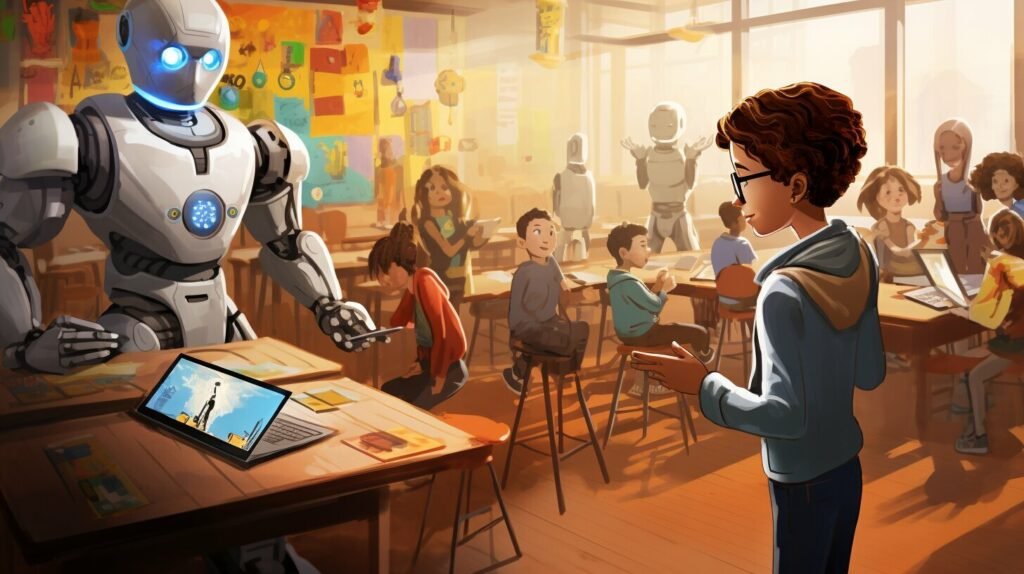
Ethical Considerations and Challenges
As AI becomes increasingly prevalent in our daily lives, it is important to consider the ethical implications and potential challenges that come with it. One of the main concerns is the potential for AI algorithms to perpetuate biases and discrimination. This can occur when algorithms are trained on biased datasets, leading to discriminatory outcomes.
Another issue is the potential loss of jobs due to automation. While AI has the potential to streamline processes and improve efficiency, it may also lead to job displacement. It is important to consider the impact on the workforce and how to address these changes.
Privacy is another concern with the increased use of AI. As more personal data is collected and analyzed, it becomes imperative to implement secure privacy policies and consider user consent for data usage.
Finally, the lack of regulation and ethical guidelines in AI development and deployment is a challenge that needs to be addressed. As the technology continues to evolve at a rapid pace, it is important to ensure that it is developed and deployed in an ethical and responsible manner.
An Example of Biased AI: Facial Recognition
A prominent example of the potential for AI to perpetuate biases is in facial recognition technology. Studies have shown that these algorithms are less accurate in recognizing people of color and women, due to a lack of diversity in the training data. This highlights the importance of diversity and inclusivity in AI development, to ensure that these biases are not perpetuated.
| Challenges | Ethical Considerations |
|---|---|
| Job displacement | Bias and discrimination |
| Privacy concerns | Lack of regulation |
“As AI becomes more advanced, it is imperative that we consider the ethical implications and potential challenges that come with it. By addressing these concerns, we can ensure that this technology is developed and deployed in a responsible and ethical manner.”
Future Possibilities and Innovations
As we have seen throughout this article, AI is already transforming our world in countless ways. However, the future possibilities for AI are even more exciting.
One area of great potential is in the development of explainable AI. Currently, many AI algorithms operate as “black boxes,” meaning that they make decisions without providing a clear explanation for how or why those decisions were made. Explainable AI aims to change this by providing transparency and interpretability in the decision-making process, making it easier for humans to understand and trust AI systems.
Another area of innovation is in the field of quantum computing. Quantum computing has the potential to revolutionize AI by greatly increasing the speed and power of AI algorithms. It could also enable the development of new types of AI applications that are currently impossible with classical computing.
Finally, we can expect continued advancements in AI across all industries, from healthcare to finance to entertainment. As AI continues to learn and adapt, we can expect new breakthroughs and innovations that we can barely imagine today.
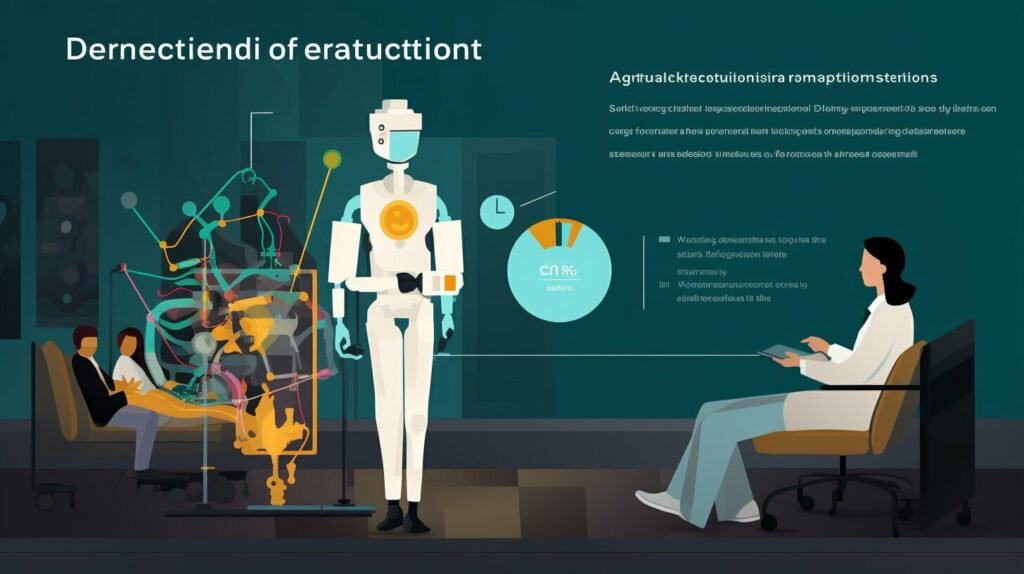
We are on the cusp of a new era of technological advancement, in which AI will play an increasingly central role. The future possibilities and innovations in AI are limitless, and the only limit is our imagination.
Conclusion
In conclusion, AI in everyday life is changing our world in profound ways. From automation and efficiency to personalized user experiences and healthcare, AI is transforming industries and enhancing our daily lives. As we continue to innovate and advance with the help of AI, we must also acknowledge the ethical considerations and challenges that come with it. Privacy concerns, bias in algorithms, and job displacement are just some of the issues we must address. However, we also have many opportunities and prospects for the future of AI. Emerging trends such as explainable AI and quantum computing hold the potential for even greater innovations in the years to come. In summary, AI is shaping our world and will continue to do so, and we must approach it with caution, but also with excitement for what the future holds. AI in everyday life is truly changing our world.
FAQ
Q: What is AI in everyday life?
A: AI in everyday life refers to the integration of artificial intelligence technologies and applications into our daily activities and experiences. It encompasses various areas such as smart devices, automation, personalized user experiences, healthcare, education, and more.
Q: How is AI changing our world?
A: AI is changing our world by revolutionizing industries, streamlining processes, improving productivity, enhancing user experiences, transforming healthcare delivery, and enabling personalized learning experiences, among many other advancements. It has the potential to reshape how we live, work, and interact with technology.
Q: What are some examples of AI in everyday life?
A: Some examples of AI in everyday life include virtual assistants like Siri and Alexa, smart home devices, personalized recommendations on streaming platforms, chatbots in customer service, autonomous vehicles, AI-powered healthcare diagnostics, and educational tools that adapt to individual learning needs.
Q: What are the challenges and ethical considerations related to AI in everyday life?
A: Challenges and ethical considerations related to AI in everyday life include privacy concerns, bias in algorithms, job displacement due to automation, the need for transparency and explainability in AI systems, ensuring fairness and accountability, and developing ethical guidelines to govern AI development and deployment.
Q: What are some future possibilities and innovations in AI?
A: Some future possibilities and innovations in AI include the advancement of explainable AI, the development of quantum computing for more powerful AI systems, the potential impact of AI on industries such as finance, transportation, and agriculture, and the exploration of AI in space exploration and scientific research.

